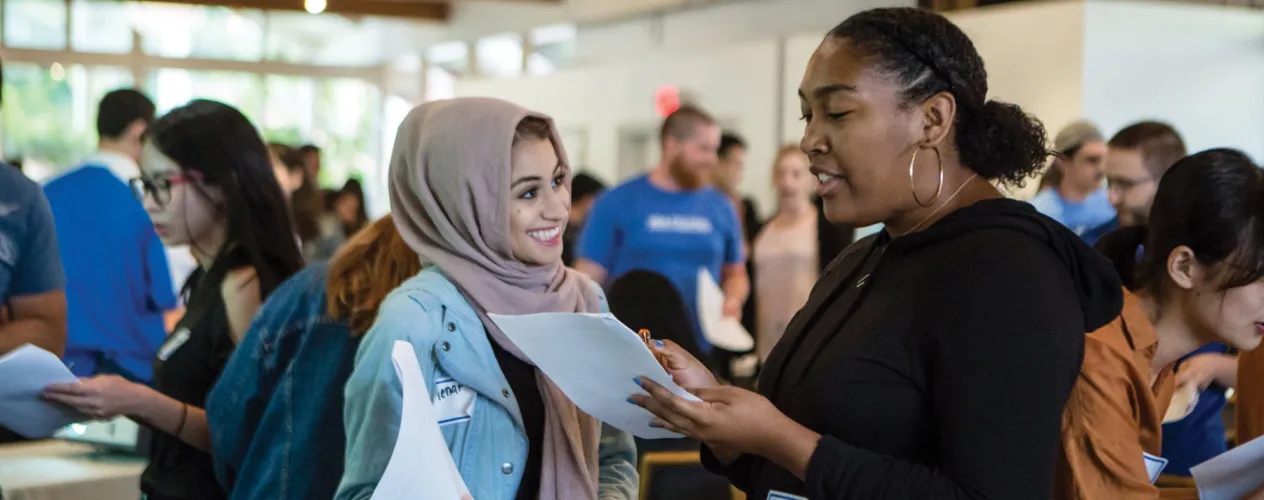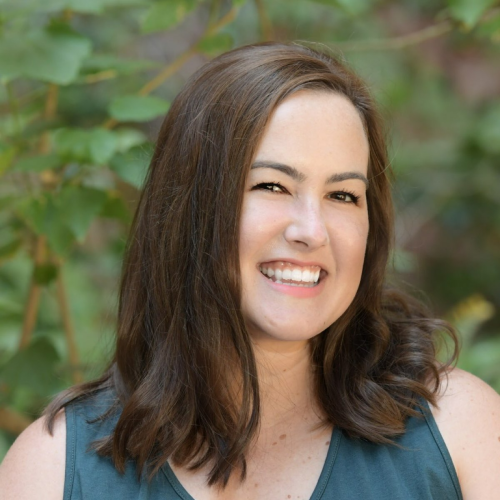Hire Education
The FSPH Career Services office empowers students with information about employment trends and possible career pathways, practical resources, and a community of support to confidently make a lifetime of career decisions.

BARELY MORE THAN A YEAR AFTER GRADUATING from the Fielding School, Gelliza Gervacio (MPH ’17) holds her dream position, working as a biostatistician at a clinical research organization in Carlsbad, California. For that, she says, she owes a debt of gratitude to both her biostatistics education and the training she received from the FSPH Career Services office.
“Getting your degree doesn’t guarantee that you’ll end up with the job you’re looking for,” Gervacio says. “In addition to subject-specific expertise, you need professional skills — including knowing how to make your résumé stand out, how to establish relationships with people in your industry and how to present yourself in ways that will make people want to hire you.”
The FSPH Career Services office trains students in these skills through one-on-one counseling, as well as activities ranging from peer-to-peer workshops to hands-on learning experiences. Students learn about employment trends, obtain feedback on their résumés, conduct mock interviews and salary negotiations, and are counseled on how to make the most of their internship experiences. They are connected as part of the training with potential employers, including alumni and other community partners.
“We want to equip students with the confidence, skills, tools and community to move successfully through every phase of their internship, their job search and beyond,” says Kristy Sherrer, FSPH’s career services director. “By prioritizing this type of training, we’re making sure students have the pieces they need to maximize their impact on the public health workforce.”
The training starts with a self-assessment. Unleash Your Strengths, a new initiative based on Gallup’s StrengthsFinder assessment, is administered to all incoming students. Once they are made aware of their strengths, Sherrer explains, students can better identify areas within public health where they can make the biggest impact and achieve the most fulfillment.
Sherrer notes that the Fielding School has surveyed employers about the skills they particularly value in new hires, and has asked FSPH alumni what skills they found most valuable as they moved into the job market. Among both groups, the most frequent responses were strong verbal and written communication, along with problem-solving skills. “Building confidence around professional communication is a major focus,” Sherrer says.
The professional development training provided by the FSPH Career Services office continues to be in high demand, Sherrer notes. As part of an assessment of the level of participation and effectiveness of the programs, she found that students’ self-reported confidence levels in professionalism topics soared from 47 percent before the training to 95 percent after.
Gelliza Gervacio was among those who moved into the high-confidence category as she took advantage of the training through the duration of her time in the MPH program. “Career advisers I saw before I got to the Fielding School tended to offer more generic tips, but Kristy Sherrer understood the statistics industry,” she says. “Because of that, the advice I received was geared to exactly what I wanted to be doing after graduation.”
